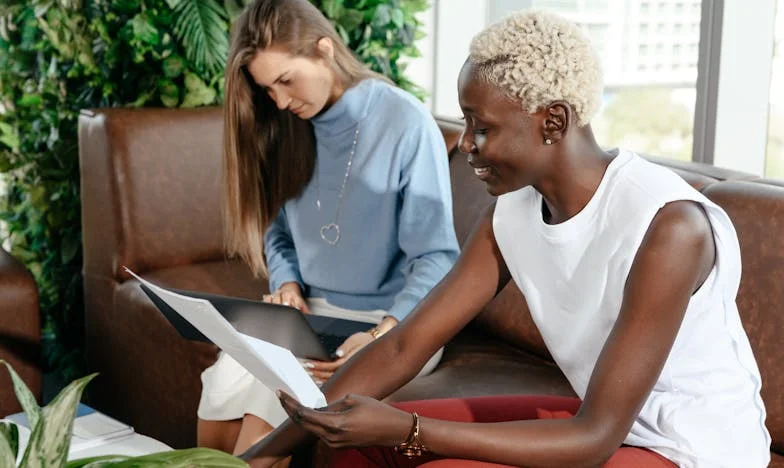Between Loyalty and Love: A Daughter’s Dilemma
“I can’t believe you would choose him over your own family!” my mother screamed, her face flushed with anger and disbelief. The echo of her words bounced off the walls of our small living room, where so many of our memories—and arguments—were born. I stood there, my heart pounding, feeling the weight of her disappointment like a leaden cloak wrapped around my shoulders.
It all started when I was fourteen. My father had left us for another woman, and with that, our world turned upside down. My mother and I were forced to share our home with him and his new partner for two years, a period filled with resentment and silent dinners. I had learned to hold my breath, hoping that by not reacting, maybe the storm would pass.
When my mother finally gathered enough courage to ask them to leave, it was a moment of triumph mingled with the bitter taste of reality. We were alone, and I was thrust into a role I neither asked for nor wanted. I became my mother’s confidante, her emotional support, and in many ways, her partner in survival.
But life, as it often does, had other plans for us. At nineteen, I met Ryan. He was everything I had ever dreamed of—kind, attentive, with a sense of humor that could light up the darkest room. He was my escape, my haven, and for once, I felt truly alive. When I introduced him to my mother, I had hoped she would see him through my eyes. But her first words were, “He reminds me too much of your father.”
Ryan and I grew closer, and the more I fell in love, the more my mother withdrew. “He’s not right for you, Emma,” she would say, her voice heavy with the weight of past betrayals. “I don’t want you to get hurt like I did.” Her fears were palpable, yet I couldn’t shake the feeling that she was projecting her own heartache onto me.
It reached a boiling point one evening when Ryan proposed. He had taken me to the park where we had our first date, and as the sun dipped below the horizon, painting the sky in hues of pink and orange, he knelt down and asked me to be his forever. I said yes, tears of joy streaming down my face.
The news of our engagement was met with icy silence at home. My mother refused to speak to me for days, and when she finally did, it was to deliver an ultimatum. “Either you end it with him, or you can find somewhere else to live,” she said, her voice trembling with a mixture of fear and anger.
I was torn. The thought of leaving my mother alone, after all we had been through, felt like betrayal. Yet, the idea of losing Ryan was equally unbearable. I found myself caught between the two people I loved most.
“Mom, please, can’t you just try to get to know him?” I pleaded one night, hoping for a sliver of understanding.
“Emma, I can’t,” she replied, her eyes filled with unshed tears. “Every time I look at him, I see your father. I can’t go through that again.”
Her words stung, and I realized then that her past was a chain, binding her to memories she couldn’t escape. But I wasn’t her, and Ryan wasn’t my father.
I spent countless nights lying awake, staring at the ceiling, my mind a battlefield of conflicting emotions. How do you choose between the past and the future? Between loyalty and love? I was no closer to an answer than the day Ryan proposed.
The turning point came unexpectedly. One afternoon, I found my mother sitting on the porch, a letter from my father in her hands. It was an apology, years too late, but genuine. “I’m sorry for everything,” it read. “I hope you can find it in your heart to forgive me.”
I watched as she read the letter over and over, tears cascading down her cheeks. It was then I realized that forgiveness was the key. Not just her forgiving him, but me forgiving her for the burden she unknowingly placed on my shoulders.
“Mom,” I said softly, sitting down beside her. “I love you. And I love Ryan. I need you to trust me, to trust that I can make my own choices.”
She looked at me, her expression softening. “I just don’t want you to get hurt,” she whispered, her defenses slowly crumbling.
“I know,” I replied, taking her hand in mine. “But I need to live my life, not just for you but for me too.”
It was the beginning of a slow healing process. My mother agreed to meet Ryan again, this time with an open heart. It wasn’t easy, and there were still moments of tension, but it was a start. She was learning to let go of the past, and I was learning to step into my future.
As I look back now, I realize the journey wasn’t just about choosing between my mother and Ryan. It was about understanding that love isn’t just about holding on—sometimes, it’s about letting go.
And so I ask myself, how much of our lives do we live for others, and how much do we live for ourselves? In the end, isn’t the greatest act of love allowing someone the freedom to choose their own path?”
